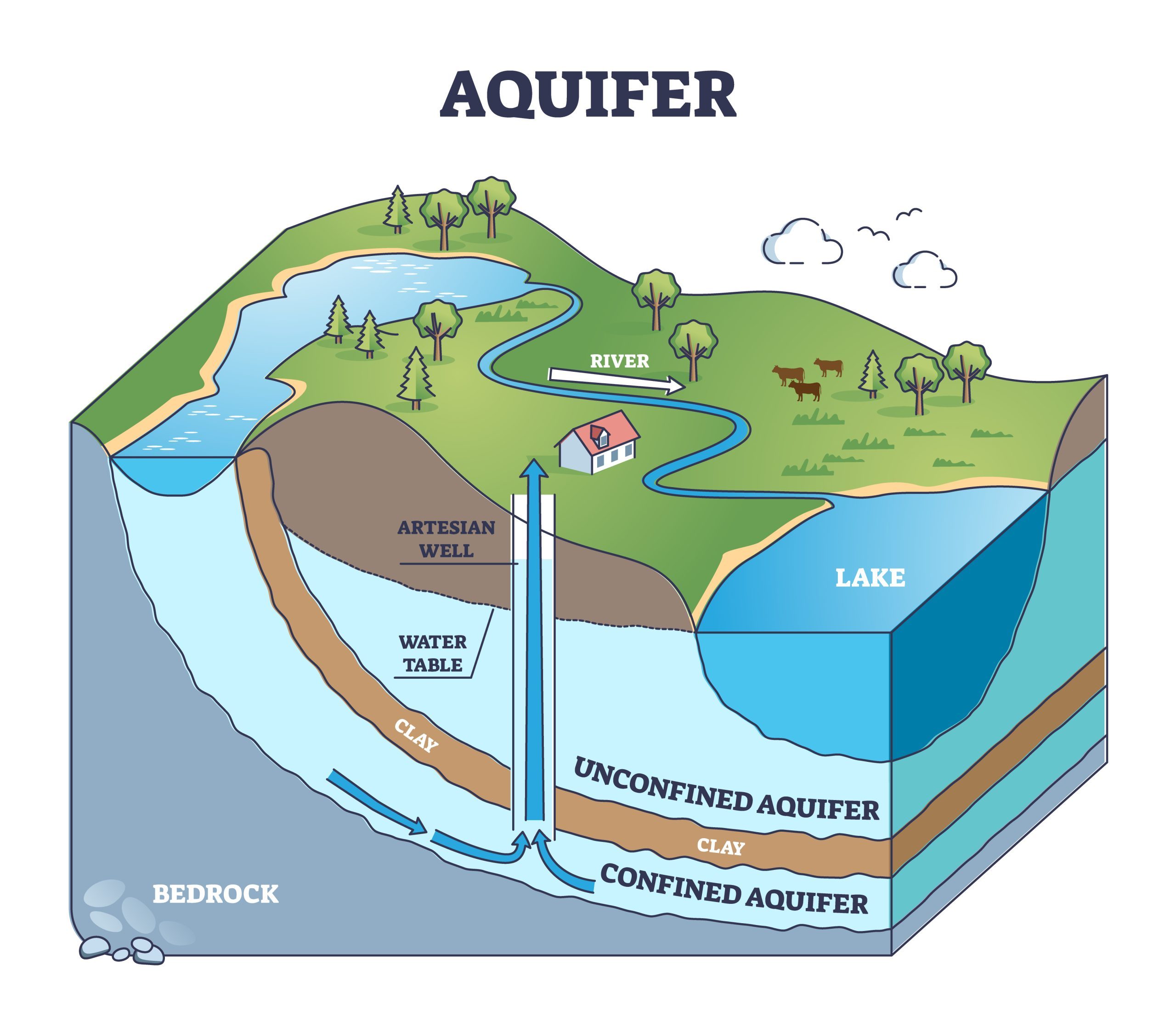
A look at Hydrogeology
-
Hydrogeology, an interdisciplinary discipline that combines geology, hydrology, chemistry and physics, is a window to the underground world of our planet. It studies groundwater, which is a vital resource for life on Earth and plays an essential role in numerous geological and environmental processes. In this article, we will delve into the key concepts of hydrogeology, its importance and some of its practical applications.
What is Hydrogeology?
Hydrogeology is the science that investigates the distribution, movement, quality and behavior of groundwater in the Earth’s crust. It studies how water interacts with underground rocks and soils, how it is stored in aquifers, and how it flows through them. Additionally, it analyzes how human and natural activities affect the quantity and quality of groundwater.
Importance of Hydrogeology
Groundwater is a crucial source of fresh water for human consumption, agriculture and industry worldwide. They are especially important in regions where rainfall is low or irregular. In addition to its value as a water resource, groundwater plays a key role in the modification of the Earth’s surface through processes such as erosion and the formation of caves and grottoes.
Main Concepts in Hydrogeology
1. Aquifers and Aquitards: Aquifers are geological formations capable of storing and transmitting groundwater in significant quantities. They can be confined, where they are enclosed between impermeable layers, or unconfined, where they are in direct contact with the atmosphere through the soil. On the other hand, aquitards are geological layers that restrict or prevent the flow of groundwater, acting as impermeable or semipermeable barriers.
2. Recharge and Discharge: Aquifer recharge occurs when surface water filters through soil and rocks until it reaches the aquifer. This process can be natural, such as rainfall infiltration, or artificial, such as recharge induced by injecting water into wells. Discharge, on the other hand, is the release of water from aquifers to surface sources such as rivers, lakes, and springs.
3. Underground Flow: Groundwater moves through the pores and cracks of geological formations in what is known as underground flow. The speed and direction of flow can vary depending on the permeability of the rocks and the topography of the area. Hydrogeologists use mathematical models and field techniques to understand and predict groundwater flow behavior.
4. Pollution and Remedies: Groundwater pollution is a serious problem in many parts of the world due to human activities such as agriculture, industry and waste disposal. Hydrogeologists work on identifying and mitigating contamination, using techniques such as remediation of contaminated sites, monitoring water quality, and regulating activities that can affect groundwater quality.
Practical Applications of Hydrogeology
Hydrogeology has numerous applications in a variety of fields:
1. Water Supply: Hydrogeology helps identify and manage groundwater resources to ensure a sustainable supply of drinking water for communities and cities. Hydrogeologists carry out studies of water availability and quality, design collection and extraction systems and evaluate the viability of water supply projects.
2. Civil Engineering: In construction projects such as tunnels, building foundations and dams, it is crucial to understand the hydrogeology of the area to avoid problems such as flooding, ground subsidence and damage to infrastructure. Hydrogeologists collaborate with civil engineers to conduct geotechnical studies, design drainage systems, and monitor the water table during construction.
3. Agriculture: Hydrogeology is fundamental for the development and management of agricultural irrigation and drainage systems. Hydrogeologists study the availability and quality of groundwater, evaluate the efficiency of irrigation systems, and design drainage systems to prevent soil salinization and depletion of water resources.
4. Natural Resources Management: The sustainable management of water resources and the protection of aquatic ecosystems require a deep knowledge of hydrogeology and its interactions with other components of the environment. Hydrogeologists work on the conservation and restoration of aquatic ecosystems, the management of shared aquifers, and the environmental impact assessment of development projects.
Conclusions
Hydrogeology is an exciting science that allows us to understand and manage one of the most valuable natural resources on our planet: groundwater. From identifying and protecting aquifers to managing pollution and designing water supply systems, hydrogeologists play a crucial role in the conservation and sustainable use of groundwater for present and future generations.